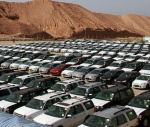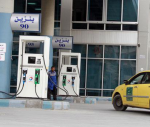You are here
Unwinding the Iran nuclear deal
Sep 07,2017 - Last updated at Sep 07,2017
The big mistake apparently about to be made by US President Donald Trump in undoing the nuclear agreement reached with Iran during President Barack Obama’s term is not just that he intends to go backwards, but that he does not intend to go forwards. (To be fair, neither did Obama.)
What the Iranians negotiated was not so much the “bomb” — to be or not to be — but their pride and their position in the world, and their right to become a thriving economic and political power immune to sanctions or military threats. (Sanctions were imposed before the nuclear issue came to the fore.)
The nuclear programme was first and foremost about creating leverage so that Iran could regain the sort of respect that the offspring of the Persian empire once was given.
Second, it was about making sure that Iran is not found short when its oil reserves start to shrink. (Iran has also heavily invested in solar energy.)
For Iran, negotiations were a suggestive game of hide and seek played in front of all-angled, reflecting mirrors. They were not about actually building a bomb or, as we used to say in Pakistan’s pre-bomb days, of being “a screwdriver away from completing a bomb”.
I do not actually believe that Iran had ever the intention of building a nuclear bomb. But it was not unhappy that the West thought it was.
It did want to frighten the West. It did want to forestall what it believes is the Americans’ true ambition: to bring about “regime change”.
Ayatollah Ali Hosseini Khamenei, Iran’s supreme leader, spoke a number of times about how nuclear weapons go against the principles of Islam.
Islam is a language of love and brotherhood, not of a nuclear holocaust.
I believe him, not out of naïveté, but because I know Iran is a deeply religious society and the ayatollahs take Islamic teaching earnestly.
Children are brought up to take values seriously, to love, not hate, and to take care of the poor and widowed.
War is a last resort. Reading the Koran, nuclear weapons could never be justified.
Iran does not go easily to war.
Saddam Hussein inflicted war on Iran for no good reason, other than to demonstrate the muscle of a dictator.
Iran had never tried to build up a deterrent against Iraq. (The US and the UK supported Saddam and provided him with weapons.)
Akbar Ganji, an Iranian journalist and dissident, wrote in Foreign Affairs that Khamenei “is not a crazy, irrational or reckless zealot searching for an opportunity for aggression. Khamenei considers science and progress to be ‘Western civilisation’s truth’”.
He is a great reader of Western novels and considers Victor Hugo’s “Les Miserables” “to be the best novel that has been written in history”.
He is an intellectual who enjoys the company of other intellectuals, including from the secular opposition.
Unfortunately, he was attracted as a young man to the writings of Egyptian Sayyid Qutb, whose severe Islamic thinking inspired Osama Ben Laden. He has since moderated his opinions.
Nevertheless, he wants, as does most of Iran’s elite, for the most populated country in the Middle East, after Egypt, to be treated as a force to be reckoned with in Middle East politics.
He does not like Iran being ignored when it comes to how to deal with Syria, Afghanistan or Israel.
Obama did not want to be seen to “cosy up” to Iran’s government, so the nuclear deal was as far as he was prepared to go. This was an opportunity forgone.
So what happens?
Iran is seen as a “spoiler” that gets in the way of rational Western policies and supports the Syrian government, deploys Hizbollah and like-minded armed groups and supports Hamas in Palestine to counter Western, Israeli and Saudi Arabian interests.
I doubt it ever crossed Trump’s mind that by cutting Iran in he could achieve quite a lot. No, cut it out and squeeze it even more than it ever has been.
He has the tool at hand: reneging on the Obama deal. All he has to do is to persuade the intelligence agencies to manufacture some sort of a case that Iran is not doing its part to honour the deal. Hence, the enormous pressure he has put on them.
If Trump succeeds in his aim, will other countries party to the solemn agreement ratified unanimously by the UN Security Council go along with him?
China will not, for a start; it purchases 30 per cent of Iran’s oil.
Is Trump going to punish China just when it needs Beijing’s help over the real bombs in North Korea?
The EU will think on similar lines. Airbus needs that big new market — 173 new planes so far have been ordered by Iran.
Again, the world has to find a way to stop Trump in his tracks.













